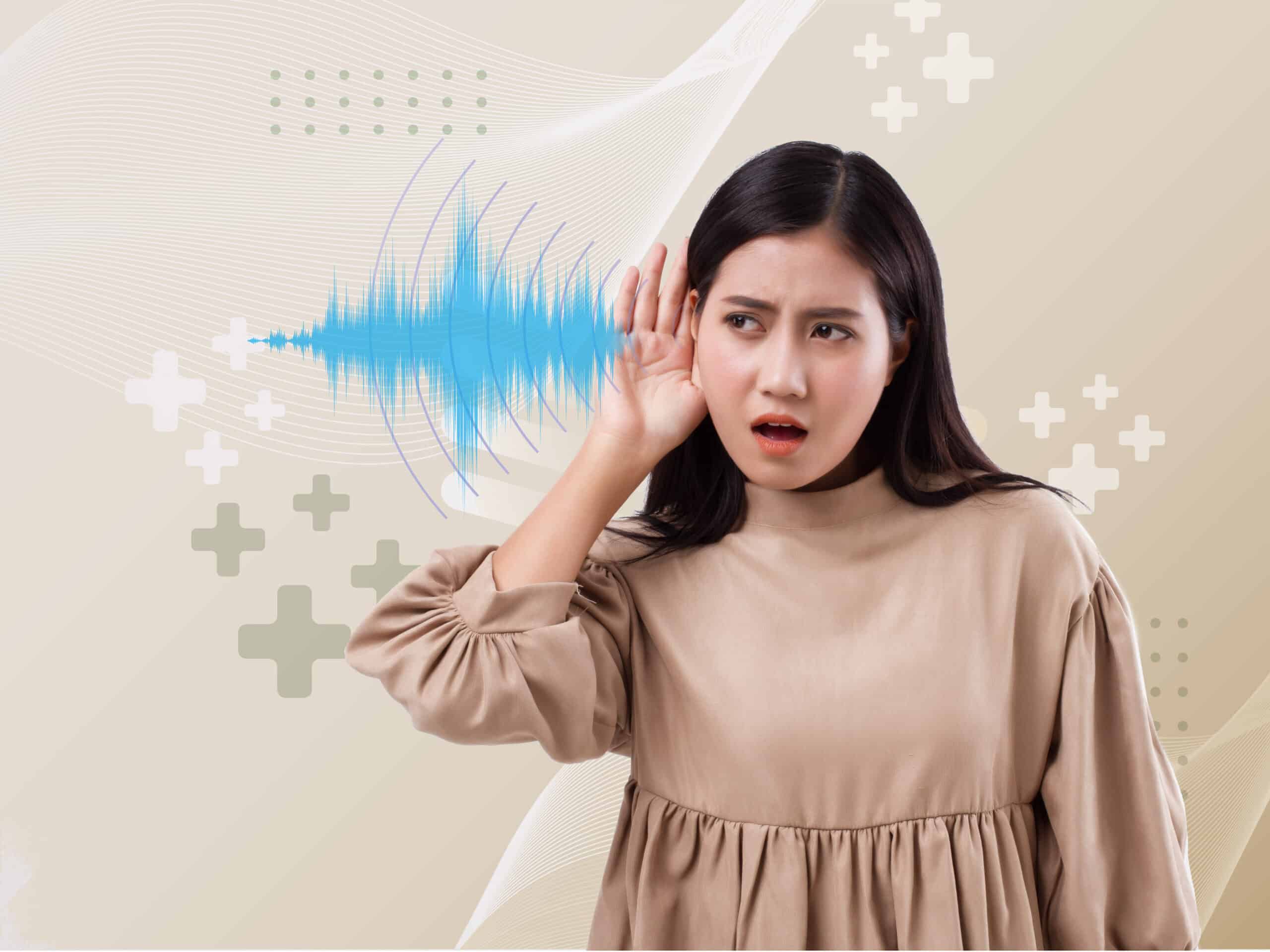Table of Contents
Hearing plays a vital role in our ability to communicate, work, and connect with loved ones. When hearing begins to decline, everyday life can feel overwhelming. Among the different types of hearing loss, sensorineural hearing loss (SNHL) is the most common. It occurs when the inner ear or auditory nerve is damaged, making it harder to process sounds.
If you or someone you love has been diagnosed with SNHL, you may be wondering what treatment options are available. The good news is that Singapore offers world-class medical facilities, ENT specialists, and advanced hearing solutions. From SNHL treatment in Singapore to long-term hearing rehabilitation and even cochlear implants, patients have access to comprehensive care.
This guide explores what sensorineural hearing loss is, its causes, symptoms, and the full range of sensorineural hearing loss treatment in Singapore.
What is Sensorineural Hearing Loss (SNHL)?
Sensorineural hearing loss occurs when there is damage to the inner ear (cochlea) or the auditory nerve. This damage disrupts how sound signals are transmitted to the brain. Unlike conductive hearing loss (which involves the outer or middle ear and is sometimes reversible), SNHL is usually permanent.
Key characteristics of SNHL:
- Reduced ability to hear faint sounds
- Difficulty understanding speech, especially in noisy environments
- Sounds may seem muffled or distorted
- Often affects both ears, but can sometimes be one-sided
Because of its impact on daily communication, timely ENT sensorineural hearing loss diagnosis and treatment are critical.
Common Causes of Sensorineural Hearing Loss
SNHL can develop suddenly or gradually. Some of the most common causes include:
- Aging (Presbycusis): Natural wear and tear on the cochlea over time.
- Noise Exposure: Prolonged exposure to loud music, industrial noise, or sudden explosive sounds.
- Genetics: Family history of hearing impairment.
- Sudden SNHL: A rapid decline in hearing, often linked to viral infections, blood circulation issues, or autoimmune conditions.
- Head Trauma: Injuries that affect the inner ear or nerve pathways.
- Medical Conditions: Diabetes, hypertension, or ototoxic medications.
Identifying the cause helps ENT specialists tailor the best SNHL treatment in Singapore for each patient.
Symptoms of Sensorineural Hearing Loss
Recognizing the early signs of SNHL is vital. Common symptoms include:
- Struggling to understand conversations, especially in noisy places
- Frequently asking people to repeat themselves
- Feeling that others are “mumbling”
- Needing to increase TV or radio volume
- Ringing or buzzing in the ears (tinnitus)
- Difficulty hearing high-pitched sounds (birds, children’s voices, consonants like “s” or “t”)
If you experience these symptoms, consult an ENT sensorineural hearing loss specialist for a thorough evaluation.
Diagnosing Sensorineural Hearing Loss in Singapore
Accurate diagnosis is the foundation of effective treatment. In Singapore, audiologists and ENT doctors use several tests to confirm SNHL:
- Pure Tone Audiometry: Measures your ability to hear different frequencies.
- Speech Audiometry: Tests how well you understand speech at varying volumes.
- Tympanometry: Assesses middle-ear function to rule out conductive hearing loss.
- Otoacoustic Emissions (OAE): Measures inner ear (cochlear) function.
- Auditory Brainstem Response (ABR): Tests nerve pathways from the ear to the brain.
Once confirmed, your care team will recommend a suitable sensorineural hearing loss treatment in Singapore based on severity and lifestyle needs.
Sensorineural Hearing Loss Treatment Options in Singapore
While most cases of SNHL are permanent, modern therapies and devices can significantly improve hearing ability and quality of life.
1. Hearing Aids for SNHL
Modern digital hearing aids are one of the most common treatments. They amplify sounds and help patients hear more clearly in daily situations. At The Hearing Centre, a wide range of devices are available, including:
- Signia Hearing Aids – known for AI technology and rechargeable options.
- Phonak Hearing Aids – excellent for speech clarity and connectivity.
- Starkey Hearing Aids – innovative with in-ear health tracking features.
- Resound Hearing Aids – popular for Bluetooth streaming and sound naturalness.
Brands like Signia, Phonak, Starkey, and ReSound offer high-quality solutions with features such as Bluetooth streaming, rechargeable batteries, and noise reduction technology.
Hearing aids amplify sounds and make speech clearer, offering a non-invasive sensorineural hearing therapy option.
2. Cochlear Implant for SNHL
For individuals with severe to profound SNHL who gain little to no benefit from hearing aids, a cochlear implant may be recommended.
A cochlear implant for SNHL works by bypassing the damaged inner ear and directly stimulating the auditory nerve. Singapore hospitals and specialized clinics offer world-class cochlear implant programs, ensuring comprehensive pre-surgery counseling, surgical expertise, and post-surgery rehabilitation.
3. Hearing Rehabilitation and Therapy
Hearing devices alone are often not enough. Hearing rehabilitation plays a crucial role in helping patients adapt. Rehabilitation programs in Singapore may include:
- Auditory training: Exercises to improve speech recognition.
- Lip-reading classes: Learning to complement hearing with visual cues.
- Counseling and support groups: Addressing emotional and psychological impacts.
- Speech therapy: Especially important for children with SNHL.
This holistic approach ensures that patients don’t just hear better but also communicate effectively in daily life.
4. Medical and ENT Interventions
While most SNHL cannot be cured medically, ENT doctors may prescribe treatments for specific cases:
- Corticosteroids: For sudden sensorineural hearing loss, steroids may restore some hearing if started early.
- Treating underlying conditions: Managing diabetes, hypertension, or autoimmune disorders can slow progression.
- Surgical options: In rare cases, inner ear surgery may be considered.
5. Assistive Listening Devices (ALDs)
Beyond hearing aids and implants, patients can use assistive technology such as:
- FM systems in classrooms
- Infrared (IR) Systems
- Amplified telephones
- Induction Loops
- Alerting Devices
These tools enhance independence and improve the quality of life alongside SNHL treatment in Singapore.
Living with Sensorineural Hearing Loss
Adapting to SNHL is a journey, but with the right support, patients in Singapore can continue to live fulfilling lives. Some practical tips include:
- Protect your hearing: Scheduling regular hearing tests
- Stay connected: Use hearing aids consistently and engage in social interactions.
- Maintain devices: Regular cleaning, servicing, and hearing aid adjustments are vital.
- Regular check-ups: Schedule follow-ups with your ENT and audiologist.
- Embrace technology: Use Bluetooth hearing aids and smartphone apps for convenience.
Why Singapore is a Leading Destination for SNHL Treatment
Singapore is known for its advanced healthcare system, making it an excellent choice for SNHL management. Patients benefit from:
- Experienced ENT specialists trained internationally
- Comprehensive diagnostic services
- Access to the latest hearing aid and cochlear implant technology
- Multilingual rehabilitation programs
- World-class hospitals and specialized hearing centres
Whether you need a cochlear implant for SNHL or long-term hearing rehabilitation, Singapore offers personalized solutions that prioritize patient well-being.
Conclusion
Sensorineural hearing loss treatment in Singapore combines medical expertise, advanced technology, and personalized rehabilitation programs. Whether through hearing aids, ENT sensorineural hearing loss management, sensorineural hearing therapy, or cochlear implant SNHL solutions, patients can look forward to improved hearing and quality of life.
If you suspect SNHL, don’t delay—early diagnosis and timely SNHL treatment in Singapore make all the difference. With the right care, you can reconnect with the sounds of life and enjoy meaningful communication once again.
Frequently Asked Questions
Most cases are permanent, but treatments like hearing aids, cochlear implants, and therapy can greatly improve hearing.
Costs vary depending on whether you choose hearing aids, cochlear implants, or rehabilitation. Insurance or subsidies may help.
Yes, ENT specialists diagnose the condition, treat sudden cases, and recommend long-term hearing solutions.
Hearing aids amplify sound and improve communication for mild to moderate cases.
Yes, they are highly effective for severe to profound SNHL when hearing aids are not sufficient.
It varies by patient. Some adapt within weeks, while others need months of therapy and training.
If treated quickly with corticosteroids, some patients regain partial or full hearing.
Yes, many clinics offer therapy and rehabilitation to support hearing aid or implant users.
Protecting your ears from loud sounds, managing chronic conditions, and attending regular hearing check-ups.
Specialized clinics like The Hearing Centre and major hospitals offer complete diagnosis, treatment, and rehabilitation options.

Evlin is passionate about helping people with hearing loss. With years of experience in audiology, she has diagnosed and treated a wide range of hearing conditions across all age groups. She is accredited to conduct comprehensive hearing assessments and provide treatments for patients from newborns to the elderly. Committed to personalized care, she strives to empower patients to fully engage in life with better hearing.
Designation: Clinical Audiologist
Qualification: Bachelor of Health Science (Honours) (Audiology), University of Science Malaysia
Membership: .Society of Audiology Professionals in Singapore (SAPS)
